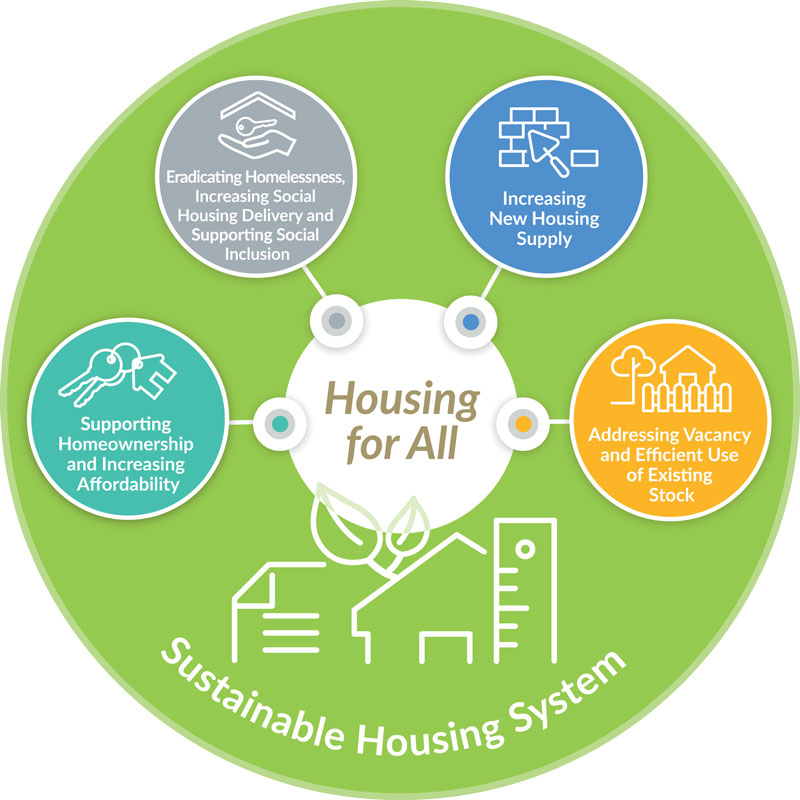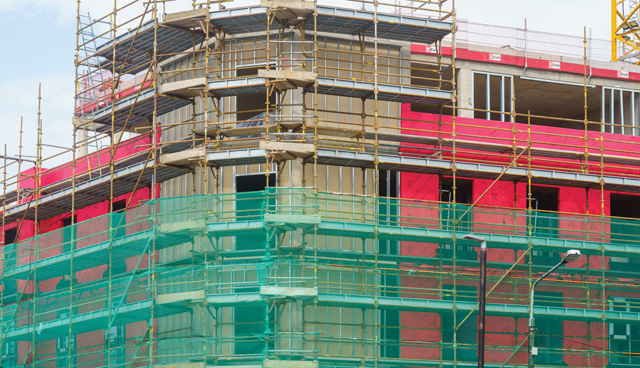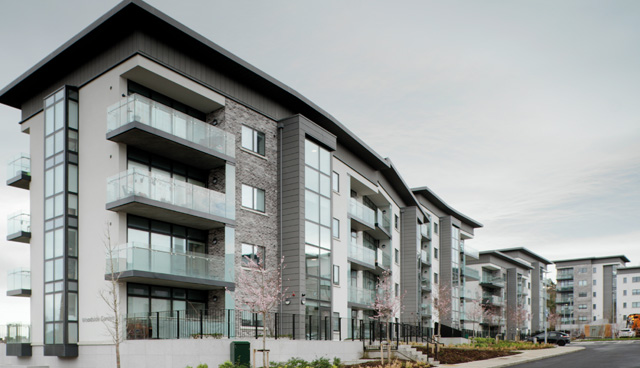
Collateral warranties: Understanding their importance and implications
18th July 2023
Focusing on construction to deliver social and cost rental homes
18th July 2023A sustainable housing system

Following the first annual review of Housing for All, Feargal Ó Coigligh, Assistant Secretary in the Department of Housing, Local Government and Heritage, discusses the priority actions for the year ahead.
Published in September 2021, Housing for All commits to increasing the supply of housing to an average 33,000 per year and fundamentally reforming the system of housing to ensure it is sustainable into the future.
Subsiding Ireland’s new housing plan is an average of over €4 billion per year in funding through the Exchequer, the Land Development Agency (LDA), and the Housing Finance Agency.
Housing for All calls for over 300,000 homes by the end of the decade, broken down into an estimated 90,000 social homes, 36,000 affordable purchase homes, 18,000 cost rental homes, and 170,000 private homes.
Following the publication of the results of Census 2022, the Department is working in conjunction with ESRI to review these figures in 2023, to support the refreshment of the National Planning Framework scheduled for later this year.
While Ó Coigligh accepts that there is some debate around the scale of homes needed to meet demand, he says what is not contested is that Ireland needs a huge volume of new housing.
Underpinning the most recent housing plan for Ireland, the Assistant Secretary explains, is the four pathways to enable a sustainable housing system of:
- supporting home ownership and increasing affordability;
- eradicating homelessness, increasing social housing delivery, and supporting social inclusion;
- increasing new housing supply; and
- addressing vacancy and efficient use of existing stock.
Ó Coigligh explains that these pathways are shaped by recognition that the cultural expectation in Ireland continues to be towards homeownership, something that has changed little in recent decades.
“However, one thing that has changed is that we are a much more diverse society and much more mobile society,” he adds.
Amidst Ireland’s housing crisis, the Assistant Secretary is quick to point out the context of radical change.
“When I first came to work in Dublin in 1991, the employment rate was one million people, the same as it had been at the birth of the State in 1921. After zero growth in 70 years, we now have over 2.5 million employed in this State. This island has been transformed, our urban areas have been transformed and with that has come challenges.
“Sometimes we overestimate what we can do in the short term but underestimate what we can do in the long term.”
Ó Coigligh explains that more immediate system pressures have forced a refocus in Housing for All’s first annual review, not least rising inflation, the arrival of seekers of international protection to Ireland, and the lifting of Covid restrictions.
“The review of the plan sets out how the Government is responding to changed circumstances of price inflation, rising interest rates, and other factors,” explains the Assistant Secretary, who outlines the 33 priority actions that focus on supply and key challenges;
- viability, affordability, and sustainability;
- reforming the planning system;
- delivering social and affordable homes;
- boosting productivity;
- increasing construction sector capacity;
- revitalising towns and villages;
- improving the rental market; and
- planning for the future.
Outlining progress to date on a number of key issues, Ó Coigligh says that a lot of energy is being placed on the issues of affordability and sustainability, particularly around the greater complexity of finance and a greater dependence on “fickle” international capital. “We have a lot to do in this area,” he says, explaining the need for Ireland to ensure it is attractive inward investment in a competitive marketplace.
In relation to planning, the Assistant Secretary, who was involved in the drafting of the Planning and Development Act 2000, admits that following the vision of the first National Planning Framework (NPF) “a lot of things got unravelled and complexities were brought into the system”.
He welcomes the publication of the new draft Planning and Development Bill 2022, describing it as a fantastic effort led by the Attorney General and the Department, which is set to be finalised later in 2023.
On productivity, Ó Coigligh highlights collaboration with the Department of Enterprise, Trade and Employment to promote modern methods of construction, evaluating opportunities to lower costs, improve efficiencies in the building industry, and make the industry a more attractive place to work.
Concluding on the Department’s comprehensive review of the private rental sector, Ó Coigligh expresses a recognition of the need to move away from a “zero sum game”. “We need a system where tenants can go into the rental market and go there with security. We need landlords, whether they are small or large, to want to go into the Irish market because there is stability, with long-term returns.”







